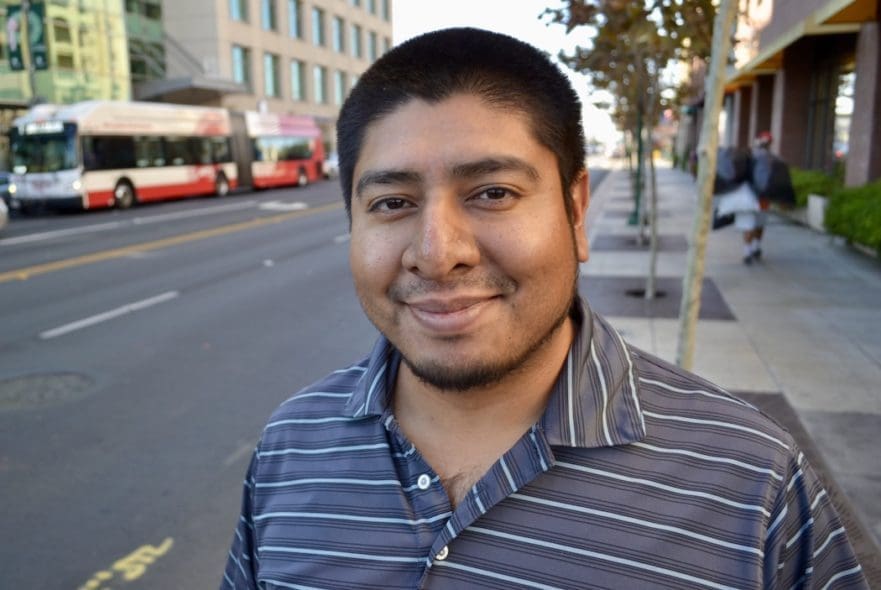In San Diego, activist Rafael Bautista is fighting a seemingly impossible fight. Landlords do whatever they want. Developers build whatever they want. And city politicians do next to nothing about the troubling practices of landlords and developers. In fact, the politicians enable them.
“They’re very developer friendly,” says Bautista, “but they’re not doing anything for tenants.”
Bautista, a soft-spoken 35-year-old with an easy smile, is co-director of the San Diego Tenants Union and a leader of San Diego Tenants United. I met him recently at his office on Fairmount Avenue in City Heights, a working-class, largely immigrant neighborhood in San Diego where Bautista grew up. He went to high school with kids from Latin America, Thailand, and Sudan, and he graduated from San Diego State University with a degree in philosophy.
“It’s helped,” Bautista says with a chuckle. “Thinking two steps ahead of the landlords.”
The tenants union organizes tenants and helps them deal with predatory landlords while San Diego Tenants United pushes for policy changes, such as a possible ballot measure to establish rent control. Bautista and his fellow activists have been working on the frontlines of San Diego’s housing affordability and gentrification crises since 2015.
“We’ve seen an escalation of mass displacement,” he says. “We’ve been getting daily calls, multiple calls, of people getting evicted for no reason. We’ve seen rents raised at very high levels.”
City Heights is one example. For years, Bautista says, City Hall ignored the neighborhood. People lived in dilapidated buildings and couldn’t count on the politicians to protect them from slumlords. But rents were inexpensive, and people made do. Then as gentrification continued to spread in San Diego, real estate insiders trained their sights on City Heights.
“It’s creating a crisis,” says Bautista, “because this was the last affordable place in San Diego.”
Along with real estate players trying to give City Heights a name change (a sure sign of gentrification), developers are building luxury-housing complexes and landlords are unfairly raising rents by 40 to 50 percent, sometimes more.
“We have a case right up the street where we have 70 percent rent increases,” says Bautista. “It’s just awful.”
Seniors on fixed incomes and lower-income residents — people who don’t hold the same kind of sway over City Hall as developers and landlords — are especially feeling the squeeze in City Heights and throughout San Diego.
“The people who were living here are leaving,” says Bautista. “It’s sad. We have people telling us they’ll go back to Mexico. We have other people who say they’ll go back to the Philippines or Iran. And people are going to Texas and Arizona because they’re paying more than half of their incomes on rents. A major rent increase can destroy a person’s life.”
Some landlords, Bautista says, are using excessive rent increases as a way to get around the city’s eviction process. Rather than get tied up with eviction papers, judges, and attorneys, the landlords deliver a massive rent hike, forcing people to move out of their homes.
“We have crumbling buildings and they’re still trying to jack up the rent,” he explains. “It’s an intentional way to displace people.”
San Diego Tenants United has been calling on City Hall to institute rent control for years, but the politicians have refused to act. So Bautista and his crew are now looking to institute rent control through a citywide ballot measure.
“We have to protect the most vulnerable,” he says. “We see who’s being targeted. It’s lower-income people.”
The signature gathering effort is never an easy task for under-funded activists.
“It will be very difficult,” says Bautista. “But from what we’ve seen, people flock to the rent control initiative because it’s so desperately needed.”
For too long, Bautista says, the system has been rigged in favor of developers and landlords, with working-class residents suffering the mean consequences.
“To them,” he says, “we’re just numbers on the spreadsheet.”

